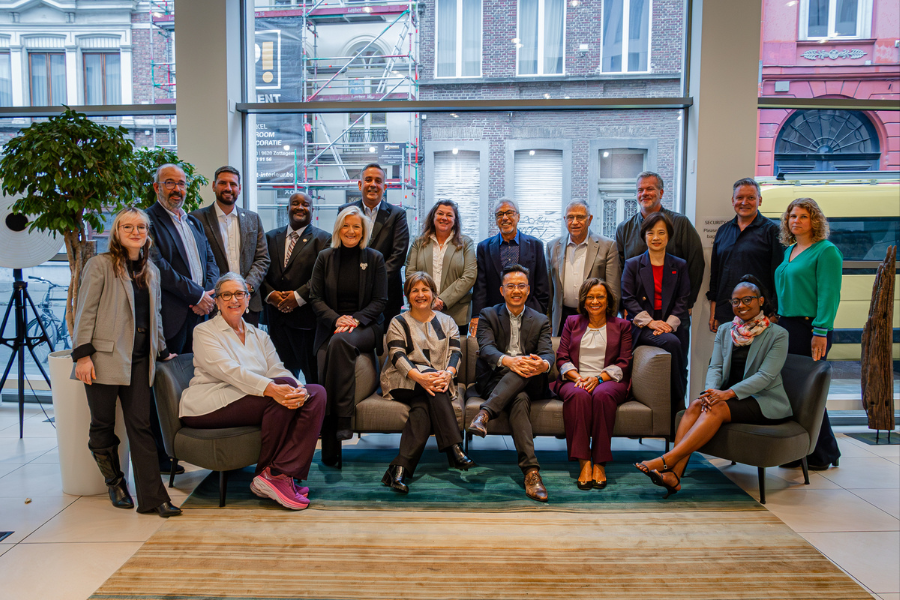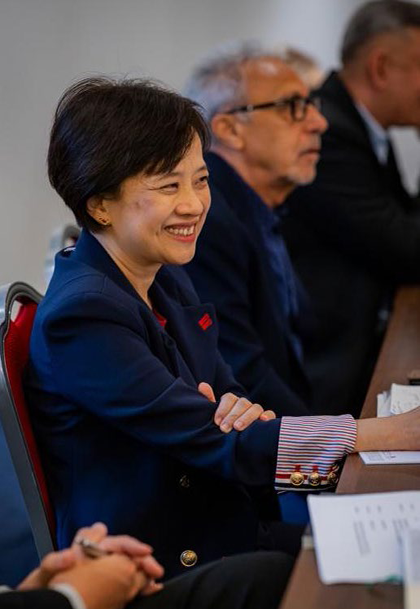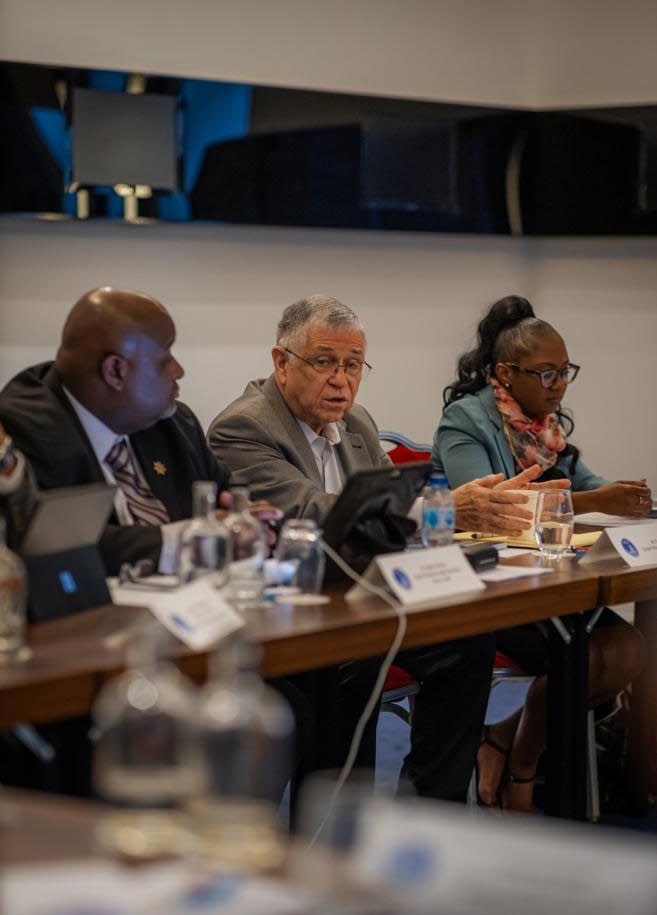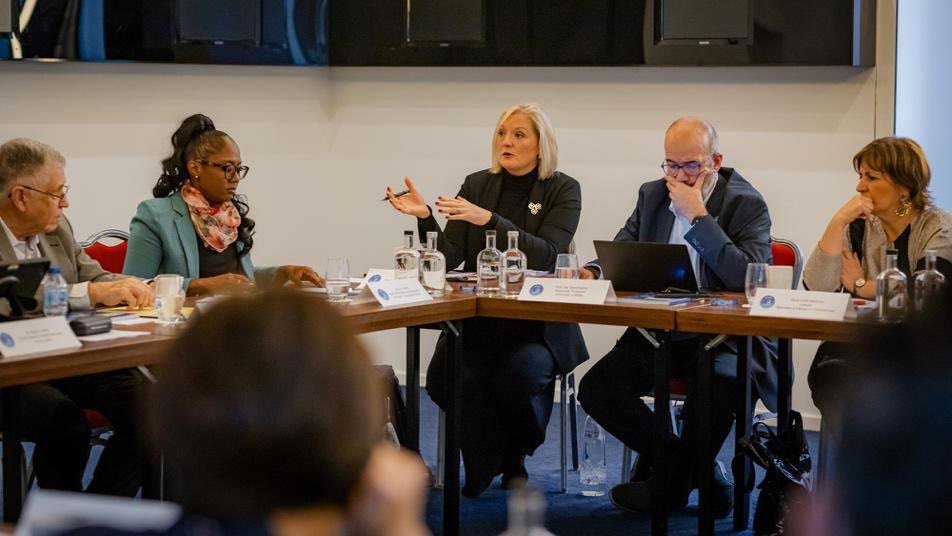
The IACFP International Correctional Mental Health Leadership Network (IACFP Leadership Network) was established in 2019. Its purpose was to:
- Provide a forum for leaders of correctional and forensic mental health:
- Learn about correctional mental health delivery systems around the world
- Collaborate in arriving at a set of principles for improving care for mentally ill offenders, both inside and outside of prison
- Promote ways to expand and to share the applied research literature on correctional mental health and
- Improve on the professional development of both licensed mental health practitioners and line staff (direct-care providers).
Since the inaugural in-person meeting in Boston, MA, the group has met virtually every quarter, has grown to thirty-two members, and represents fifteen countries, eight states and three provinces. They have continued to learn about the correctional and forensic mental health delivery systems of their jurisdictions, share ideas and research on innovation, and engage in dialogue about the challenges and opportunities that they face as leaders in this field.
In October 2023, the second in-person meeting of the IACFP Leadership Network was held in Ghent, Belgium. Eight members of the IACFP Board participated in the meeting since they held a board meeting the day before. The agenda was filled with information exchange, a tour of FPC Ghent, a presentation on, “Application of Modern Technology in Psychological Intervention: Hong Kong Experience” by Dr. Judy HUI, a dialogue about the role of technology in correctional and forensic mental health delivery systems, and a spirited discussion on staff recruitment and retention.
During the two days of the IACFP Leadership Network meeting, individuals had the opportunity to get to know other leaders and the systems they represent. As one participant said, “I thought that I knew what others did; that has now been disproved”. All participants introduced themselves and shared three challenges they face in their lives, as well as their expectations for the meeting. The recurring themes identified as challenges for participants were:
- Recruitment and retention of staff
- The role of psychological services in establishing, changing, and sustaining healthy organizational cultures
- Fragmented systems
- Number of incarcerated individuals
- Complexity of mental health issues, substance use and traumatic brain injury
- Funding
- Outsourcing
There was also time for each of the eleven countries represented to be presented in terms of scope of jurisdiction, programs that are particularly effective, challenges being faced, strategies to support improved outcomes and plans for the future. The participants found this very informative, supportive, and had rich source material to take home.

The presentation by Dr. Judy HUI was outstanding. She shared the experience that the Hong Kong Correctional Services Department had with the use of Virtual Reality (VR), digitized psychological interventions, and telepsychology.
Dr. HUI first shared some of the research that her team relied upon before developing any of the interventions. She then described the process that was used to develop the use of VR and the scenario-based VR role play system. They learned from each version and applied those learned outcomes to enhance it in the next version. They have utilized this tool in group treatment, specifically with anger management and relapse prevention skills. One of the interesting benefits of this approach is that by engaging younger staff in the development of this tool, retention has increased significantly.

Dr. HUI shared the following reflections with the IACFP Leadership Network Group:
- VR is very immersive and helps skills practice
- It provides a realistic yet safe environment
- Simulating situations can be difficult/expensive
- Therapists can provide immediate feedback
- Persons in custody are enthusiastic about the tool and are more engaged
- There is a significant monetary cost for development, including human resources
- Cybersickness
- Therapists may need additional training to expertly use this tool

As Hong Kong has developed its digitized psychological interventions, they have found it has four functions. It is useful for psychological testing, psychoeducational programs such as mindfulness and coping with depression, exercises to induce behavioral changes, and as an incentive zone.
The main key to successful use of telepsychology is that the first few individual sessions must be in-person.
In discussing their conclusions, Dr. HUI shared the following:
- The application of IT is inevitable.
- Research shows that it can enhance treatment (as a supplementary tool).
- There must be an integration of the human aspect with IT.
- Additional factors for consideration:
- Cost
- Learning mode, e.g., age and feedback from participants
- Room for further extension to other types of clinical problems
- Training needs for therapists
- Ethical and regulatory principles and international standards
On the last point, the IACFP International Network also read, in advance of the meeting, “Is AI the Future of Mental Healthcare” by Francesca Minerva and Alberto Glubilini, recently published in Topoi. The combination of this article and Dr. HUI’s presentation provided the foundation for a rich dialogue among the network participants.
The next steps for the IACFP Leadership Network are to plan a quarterly calendar of meetings for 2024 based on the input provided by the participants. In addition, the IACFP Board will be incorporating their input into a plan for additional steps that can be taken to support the Network, particularly in the area of technology and professional development.


